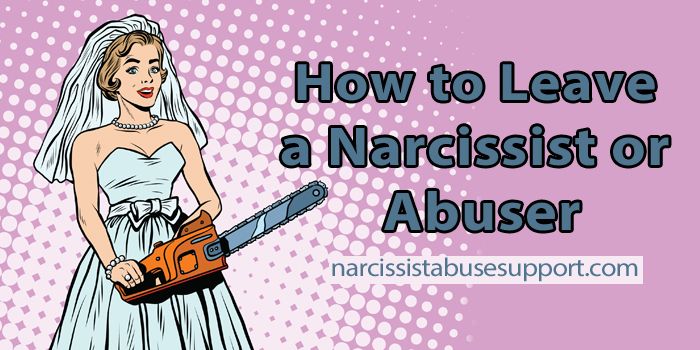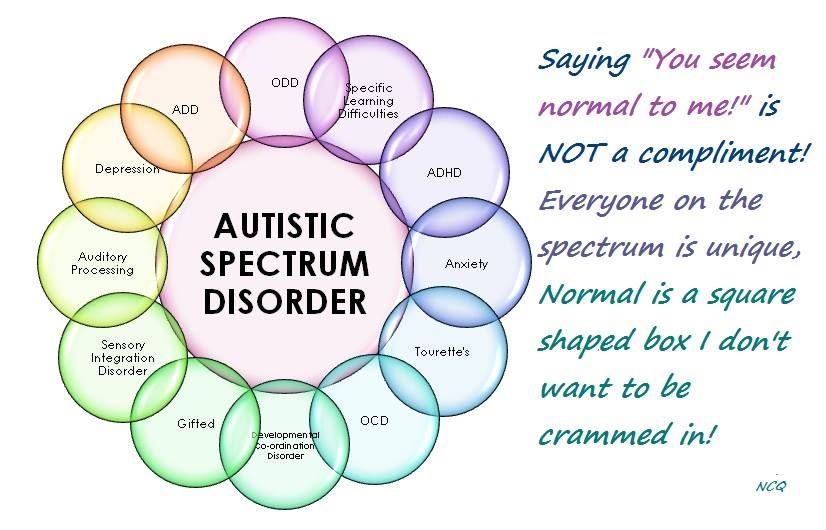When you screw up
Don't Panic! 5 Things To Do When You've Messed Up
Mistakes. We’ve all certainly made a few in our time, and the idea of committing them is never a pleasant concept. The point is that we often screw up — sometimes badly. Maybe you said the wrong thing in the heat of the moment, or did something you never would have if not for your emotional state. We’ve all been there, and it’s agonizing. The key, really, is figuring out what to do after the deed.
It’s not the end of the world if you’ve behaved badly, but you will you be treated and judged by how you handle the aftermath. If you’ve messed up at work or dropped a bit of a misfire in the home realm, then check out this quick-fire guide to five of the best things to do when you’ve screwed up.
1. Apologize immediately.
Saying “sorry” really is the best policy when it comes to committing a screw-up of any magnitude. Staying indifferent is insulting and implies that you don’t even care, which comes across as deeply rude. Therefore, you should apologize immediately to the parties concerned.
⌄ Scroll down to continue reading article ⌄
⌄ Scroll down to continue reading article ⌄
You might have to eat a bit of humble pie at one point or another, but that’s the price that comes with being less than perfect. Choosing to select the more honorable route and apologize for your mistakes might be more awkward than burying your head in the sand and walking away, but it will also earn you respect, friends, forgiveness, and self-esteem. So when you’ve screwed up, apologize sincerely, and get right back to work.
2. Get some perspective and a reality check.
One of the most important things to do when you’ve screwed up is to take a step back and gain some perspective and/or a reality check on the situation. Hopefully, the situation you’ve just instigated isn’t too serious (i.e. something that will result in a stint in criminal court or your family never speaking to you again), and if so, it helps to try to logically and objectively evaluate what you’ve done.
If your screw-up is fixable, that’s something to be grateful for. And while it might have an effect on the people you care about or work with or spend time with, you can probably resolve this problem. Chances are you haven’t killed anyone, ruined anyone’s life, or caused anyone major distress. As the great philosopher Cicero said, “Dum spiro spero” which means, “While I breathe, I hope.”
⌄ Scroll down to continue reading article ⌄
⌄ Scroll down to continue reading article ⌄
3. Make sure it doesn’t happen again by crafting a plan.
It’s okay to make mistakes; everyone screws up once in a while (yes, even that picture-perfect, sweet-as-pie girl in the office or that immaculately put-together guy down the street). The point is that screwing up is inevitable, but it’s what we do to make sure it doesn’t happen again that really matters in the long term. Basically? Make a plan.
Decide exactly what you did wrong, and really think about what you can do in the future to help prevent that from happening again. Learn something, remember something, put something into place — make a concerted effort. After you’ve sorted your plan out, go to the person who you offended or affected with your screw-up, tell them what you’re going to do to prevent it from ever happening again, and then let the chips fall where they may. It’s human to make mistakes, but what makes you a great person is how you recover from them and ensure that you never hurt the same person like that again.
Learn something, remember something, put something into place — make a concerted effort. After you’ve sorted your plan out, go to the person who you offended or affected with your screw-up, tell them what you’re going to do to prevent it from ever happening again, and then let the chips fall where they may. It’s human to make mistakes, but what makes you a great person is how you recover from them and ensure that you never hurt the same person like that again.
4. Take a break.
One of the best things to do is to get yourself out of the environment in which the mistake occurred, to stop your mind from dwelling on the situation. Staying in that immediate environment and muling over the mistake you made is only going to cause you to lose your focus, drop your ability to work and live in that situation, and end up in a shame spiral.
⌄ Scroll down to continue reading article ⌄
⌄ Scroll down to continue reading article ⌄
Go and take a breather; get yourself out of that office, or home, or wherever, and take a walk somewhere. Get yourself out of that negative headspace that will continue to haunt your mind and affect your ability to be a normal, functioning human being. Take a solid 15 minutes to gather your energy and strengths, and make your plan.
Get yourself out of that negative headspace that will continue to haunt your mind and affect your ability to be a normal, functioning human being. Take a solid 15 minutes to gather your energy and strengths, and make your plan.
5. Be kind to yourself.
Finally, practice a bit of self-compassion following a moment of guilt and sadness over a mistake. In a world where we’re expected to be flawless human beings with physical perfection and ideal lives, the idea of screwing up seems almost horrific. It isn’t. You’re human. It’s okay to mess up.
Don’t go beating yourself up, and and don’t dwell on your mistake to the point of it having a detrimental effect on your mental health or your ability to be yourself around friends, coworkers, and loved ones. They’re human too, and the vast majority of people will readily help you recover and allow you to sincerely apologize. Take a deep breath, try to calm yourself down, and remember that it isn’t the end of the world. You can always start again, and when your head hits the pillow, just remember Scarlett O’Hara’s classic, life-affirming adage, “After all… tomorrow’s another day!”
⌄ Scroll down to continue reading article ⌄
⌄ Scroll down to continue reading article ⌄
Featured photo credit: Trym Nilsen via unsplash. com
com
What To Do When You Screw Up Badly
I’ve screwed up so many times in my life that I lost count. One of my favorite mistakes is when I became homeless for 5 days in London.
That is a good story now, but believe me, I was scared out of my mind at the time. I’d recently moved to London, I had no friends, no family — and yet I managed to get kicked out of my apartment, without having a new place to live.
Another bad one was when I sent a contract for a 6 figure consulting deal to a competitor of my client. It was an honest mistake, both guys had the same name, but they happened to work for different companies.
I was so eager to send the contract that I hit the enter key too quickly when I typed the first two letters of the guy’s name. At the time, I worked for a major IT advisory firm with a good reputation — it almost cost me my job.
I can go on for a while like this. I haven’t even told you about the time I invested a lot of money in a pension fund. Did you know you can only access your money when you retire? I didn’t.
Did you know you can only access your money when you retire? I didn’t.
When I did this, a few years ago, I didn’t think things through and made a rushed decision. I thought: “The average return was 10% for the past 5 years? I’m going to put all my money in that thing!”
I didn’t really lose my money but it sure felt like it. If I can’t access my money whenever I want, it’s the same as losing my money.
Everyone has stories like mine. We, as a species, tend to screw up sometime. We can’t help it. So instead of trying to avoid mistakes, it’s better to learn how to deal with them.
Stoic philosopher, Epictetus, put it best:
“When something happens, the only thing in your power is your attitude toward it; you can either accept it or resent it.”
What do you do when you screw up? Complain? Beat yourself up? Blame others? Or worse, give up?
It’s far better to change your attitude towards mistakes. We often beat ourselves up—we stop taking risks.
After making enormous mistakes myself, and learning from other people’s mistakes, I’ve learned 4 lessons that might help you next time you screw up.
1. It Could Always Be WorseHave you heard of George Bell? In 1999, he had the opportunity to buy Google for $750,000. He said no. It won’t surprise me if George Bell cringes every time he sees Google’s current valuation.
If you think that’s bad, enter ‘the Battle of Karánsebes’.
In 1788, the Austrian army fought a battle with the Ottoman Empire. Somewhere things went wrong colossally — the Austrians fired on each other by mistake. They wounded and killed 10,000 of their own men. The Ottomans won the battle and captured the city of Karánsebes.
It’s a tragic story. In fact, I think it’s impossible to make a bigger mistake than the Austrian army. Next time you send an email to the wrong person, knows that it could be worse.
2. Make The Best Of ItHave you seen the Tower of Pisa? It wasn’t meant to be crooked. And yet, every year, thousands of people visit the leaning tower to make ‘the’ pose.
And yet, every year, thousands of people visit the leaning tower to make ‘the’ pose.
This is what you look like when you try to pose with the leaning Tower of Pisa. Image by Roberto Venturini
Think of it what you want, but the Tower of Pisa is a big tourist attraction and a lot of businesses in the area profit from it.
Good things can come from mistakes. Sir Alexander Fleming famously made a mistake that resulted in penicillin — a drug that saved millions of lives.
When I invested my money in the pension fund, it seemed like a good decision. But when I wanted to start a company a year later, I had almost no money. I thought I screwed up bad.
But it turned out to be an opportunity because I was forced to be resourceful. It was the best thing that happened to me.
One of my friends recently got fired because he made a big mistake (he actually made a few). It turned out he wasn’t focused because he hated his job. He worked in sales, but his passion is film. 2 months after he was fired, he found a job at a production company and loves every minute of it.
2 months after he was fired, he found a job at a production company and loves every minute of it.
Did you make a mistake? See it as an opportunity to do something.
3. Be Open To ChangeSometimes we make the same mistakes. We trust people who are untrustworthy. We make the wrong investments. We misjudge things.
Marcus Aurelius, Roman Emperor from 161 to 180 and philosopher, said:
“If someone can prove me wrong and show me my mistake in any thought or action, I shall gladly change. I seek the truth, which never harmed anyone: the harm is to persist in one’s own self-deception and ignorance.”
If you keep making yourself or other people unhappy, it’s time to change. If Marcus Aurelius, the most powerful man in the world during his reign, can change, so can you.
If you made a mistake, acknowledge it. Don’t discard your mistakes, at the very least, learn from them.
4. Don’t Be Afraid To Screw Up“Take a chance! All life is a chance.
The man who goes the furthest is generally the one who is willing to do and dare.”
– Dale Carnegie
In the end, everything turned out fine for me. I didn’t stay homeless, I didn’t lose my job, and it was a blessing that I couldn’t access my money.
The day you stop trying, you might stop making mistakes, but you will also stop growing.
So go out there, take a chance, and if you make a mistake — it’s not the end of the world. Just find a solution.
Remember the Austrians? I’m sure that whatever you screwed up isn’t that bad.
What to do if you screwed up?
You screw up sooner or later, as without it.
At least at the blackboard, at least in production, even on the net, where there seems to be time to think, re-read what is written, one cannot do without jambs.
What to do, if when did this happen? Fall into the bitter "everything is lost", come to despair from the injustice of the rumor "could show understanding, with whom it does not happen, but they! " or . .. work out inconsistencies in the regular order?
.. work out inconsistencies in the regular order?
“I myself learned about my “unforgivable mistake” at the lesson from one mother with whom I have been friends for a long time”— writes the heroine of today’s viral news we are people too.
However, the parent group did not forgive my mistake. A heated discussion began. Someone timidly justified me, others indignantly wrote, they say, "let her learn to read and write, and then she teaches children."
I'll tell you honestly: I have never experienced greater humiliation in my life. It was as if I didn't care about my soul. All this training in Zoom, when teachers are looked at as if under a magnifying glass, they look for mistakes and then inflate the discussion with nasty criticism - it has deprived me of the desire to be a teacher. On this day, for the first time in my life, I regretted that I had chosen such a profession.
When the above-mentioned mother began to send me screenshots of parental correspondence, it seemed to me that with each new screenshot a sharp needle was stuck in me . ... The words of one mother stuck in my memory most of all: "It is known how teachers work" very hard "... . A shame!" These angry words were accompanied by emojis from other parents. Here I could not stand it and burst into tears. Because I work really hard! I prepared that Zoom lesson for 3 hours. If you knew what it is - prepare a lesson!
... The words of one mother stuck in my memory most of all: "It is known how teachers work" very hard "... . A shame!" These angry words were accompanied by emojis from other parents. Here I could not stand it and burst into tears. Because I work really hard! I prepared that Zoom lesson for 3 hours. If you knew what it is - prepare a lesson!
I couldn't calm down. And she wrote the following message to her parents:
"Dear moms and dads, I can no longer be the class teacher of your children. Your comments on my oversight that happened on Zoom came to my attention. And if this is a stormy, devoid of any sympathy slander, this is whatever you teach your children, I refuse to teach in such an atmosphere.”
As it turned out, my appeal came as a complete surprise to parents. First, they did not understand how I knew about it. After all, it was a closed parent group. “She is a public servant and should take criticism on the merits, and not be offended. And even more so not react to criticism so nervously,” wrote one. "Friends, but we really made a big deal out of molehills here," some admitted.
And even more so not react to criticism so nervously,” wrote one. "Friends, but we really made a big deal out of molehills here," some admitted.
A few hours later I got a call from a parent who was the first to hear my mistake and started discussing it in the group. "Listen," he said. "And today she was literally driven to hysterics. Several parents were sitting next to the children during a lesson on Zoom. And then they arranged such a review on social networks that my sister feels mentally destroyed. I am very sorry that it was my fault that you had to get through this. Please forgive me and don't leave the class." " (Translated by the editors of Vesti)
We can say a happy end.
I had a chance to steer both at the pedagogical practice and in the workshop. Since "they were like that themselves" - she did not have any special illusions about what they were saying behind their backs. Correct labor relations are enough, and in the smoking room - what else to expect, if not washing the bones (besides, no one bothers the bosses or the teaching staff to do the same - take their souls away, discussing negligent subordinates or "stupid" students and parents. Hear someone " podzamochnye "gossip - there would be a scandal)
Hear someone " podzamochnye "gossip - there would be a scandal)
This teacher "under a magnifying glass" turned out to be unexpectedly in Zoom, but in production the foreman is always under a magnifying glass, and works with the same people.
When you are at work, the troubleshooting mechanism turns on by itself.
Look like politicians - they are caught on such jambs that it seems, well, fuck, they won’t get out. And he, not a little embarrassed, moves off the topic and continues as if nothing had happened.
“Guys, did you notice that in the last lesson I said “take a dozen balloons” instead of “twelve balloons”? (the politician would have told that it was on purpose to arouse interest).
Now we have a reason to discuss the difference between "home language" and high Hebrew. In the lessons we speak differently from each other - there are different registers in the language: for a friendly conversation, for official occasions and for documents, "using words from a different register out of place is a mistake, blah blah blah"
Israelis in principle kind (simply emotional), without a war of annihilation and a desire to bury.
However, one cannot knowingly expect indulgence and demand it. On the basis that, "think about the little things when you work so hard", Error, means error, recognized, corrected Everyone has a job, it's hard for everyone. Dad from the group realized and answered like an adult.
A young woman, will she learn more or the very so-called "snowflake effect" - to droop and indulge in the blues at the first upset??
Schools of schools of strife:
On November 1, a nursery teacher in Ramat Gan, suspected of child abuse, was detained by the police.
The nursery is attended by children aged 3 months to 3 years. (According to local custom - all together, in one room).
Several parents, who suspected violations and possible manifestations of cruelty towards their children, turned to the administration of the institution and demanded to watch the videos. However, they were refused.
Later, with the help of one of the employees, they managed to get access to the video files. During the viewing, episodes of child abuse and abuse were found on the recording. The parents immediately filed a complaint with the authorities, the videos, which are used as evidence, are at the disposal of the police. According to the parents who saw the footage of the shooting, the teacher threw the kids into the cribs, slapped them in the face, and also lifted them by the arms by force.
During the viewing, episodes of child abuse and abuse were found on the recording. The parents immediately filed a complaint with the authorities, the videos, which are used as evidence, are at the disposal of the police. According to the parents who saw the footage of the shooting, the teacher threw the kids into the cribs, slapped them in the face, and also lifted them by the arms by force.
Comments:
- If my child - I would tear it,
- I would break it anyway if I got to it.
The court prohibited the publication of the personal data of the detainee at the request of her lawyer.
The government and individual politicians continually apologize in print
Not in the sense that the quarantine was introduced in vain, but because they had to take such painful measures
In the social. networks, according to my observations, women are easier to resolve disagreements: “you’re right, I didn’t think about it”, “I blew something wrong, I hurried”, and the man will resist to the last, he himself will understand what the puncture and anyway, he comes up with ridiculous excuses, confuses the testimony, just so as not to admit that he messed up, sometimes this is a conscious provocation, winding up comments, but often a real inability to calmly admit mistakes.
5 steps to restore reputation • AIN.UA
February 05, 2014, 16:15
8008
American writer and columnist Gwen Moran specializes in business articles for leading US websites and magazines. She co-authored The Complete Idiot's Guide to Business Plans and is one of the 100 Most Influential Business Authors of 2012. After speaking with top consultants, Gwen outlined five simple steps to restore customer or partner trust after you or your service has made a serious mistake. It is worth noting that in compiling some of the advice, Mrs. Moran was assisted by the constant co-author of such texts - Captain Evidence.
So you screwed up. Now you need to restore your reputation so that people can trust you again.
We all know how important it is to learn from our own mistakes. But just try to make a typo that sends your customer 1,100 units instead of 100. Or accidentally click "Reply All" on an email containing sensitive information about your boss. Pushkin's phrase about "experience - the son of difficult mistakes" immediately wants to shove the author deeper.
Pushkin's phrase about "experience - the son of difficult mistakes" immediately wants to shove the author deeper.
But if it was a well-intentioned mistake, or an offense in which there was nothing immoral and illegal, it is quite possible to turn it to your advantage. These five steps will allow you to restore reputation after a serious fail.
Step One: Admit the Mistake
Deflecting or avoiding responsibility will only make matters worse. Instead, just admit your mistake and appreciate its consequences.
“People want to see you admit your mistake,” says Supriya Desai, CEO of ASC Advisory. "They want you to honestly say to your face - yes, I did it and I'm sorry."
Step two: ask for forgiveness
If you've caused a headache to others, they will probably want an apology, and a sincere one at that. “I’m sorry if you were offended,” such an apology places the blame for the wrongdoing on others. Be as specific as possible in your confession so that people understand that you fully understand the problem. Let's say you accidentally sent a letter to the entire department that was meant for a friend and in which you made fun of the employees. You will need to show that you are not asking for forgiveness for sending the letter, but for your own duplicity.
Let's say you accidentally sent a letter to the entire department that was meant for a friend and in which you made fun of the employees. You will need to show that you are not asking for forgiveness for sending the letter, but for your own duplicity.
Step three: Find a way out of the situation by communicating with those affected by your mistake
After you acknowledge the mistake and apologize, try to understand how it happened and how to avoid similar mistakes in the future, advises Igbal Ashraf, CEO of the Hawaiian company Mentors Guild . According to him, it is very important to talk with the people affected by your mistake and, together with them, look for a way out of an unpleasant situation.
For example, if the wrong products were delivered to a customer in an order, arrangements should be made to have someone double-check the orders before shipping. And if a spelling error crept into the cover of the annual report, check the entire process of its design and, if possible, include a literary editor in this chain. “When you make some decisions about a mistake, let those affected by the problem see that you have taken it seriously and are taking steps to improve the situation,” says Ashraf.
“When you make some decisions about a mistake, let those affected by the problem see that you have taken it seriously and are taking steps to improve the situation,” says Ashraf.
Step four: stop self-flagellation
Mistakes and false steps can cause great embarrassment and you can wallow in self-torture. But believe me - no one wants to hear your sobs about self-loathing for the 20th time. You admitted a mistake. You apologized. You tried to fix everything and prevent the recurrence of such cases. Now it's time to move on and focus on the future, says Ashraf. Constantly apologizing can be a sign of weakness and hurt your wealth, Desai adds.
Step five: don't just learn from mistakes, but also teach others
Mistakes don't seem so bad if you can distance yourself from them. Depending on the type and severity of the error, you can use your experience to help others avoid it, Desai says. She recalls one manager who often quarreled with members of his team during the downsizing and subsequently felt bad after the way he spoke to his subordinates.














